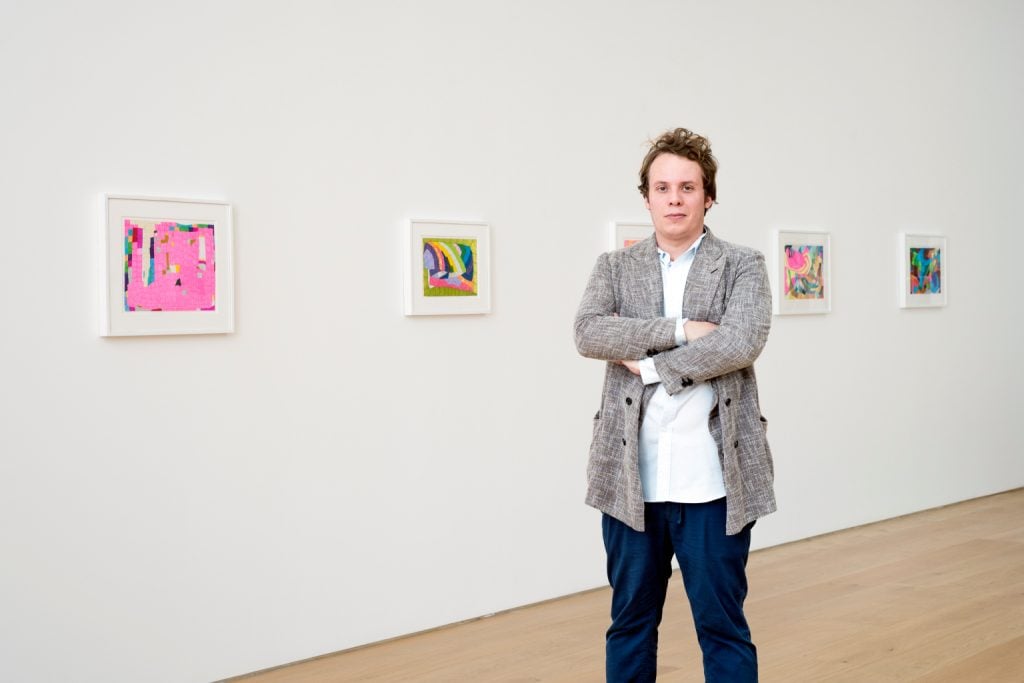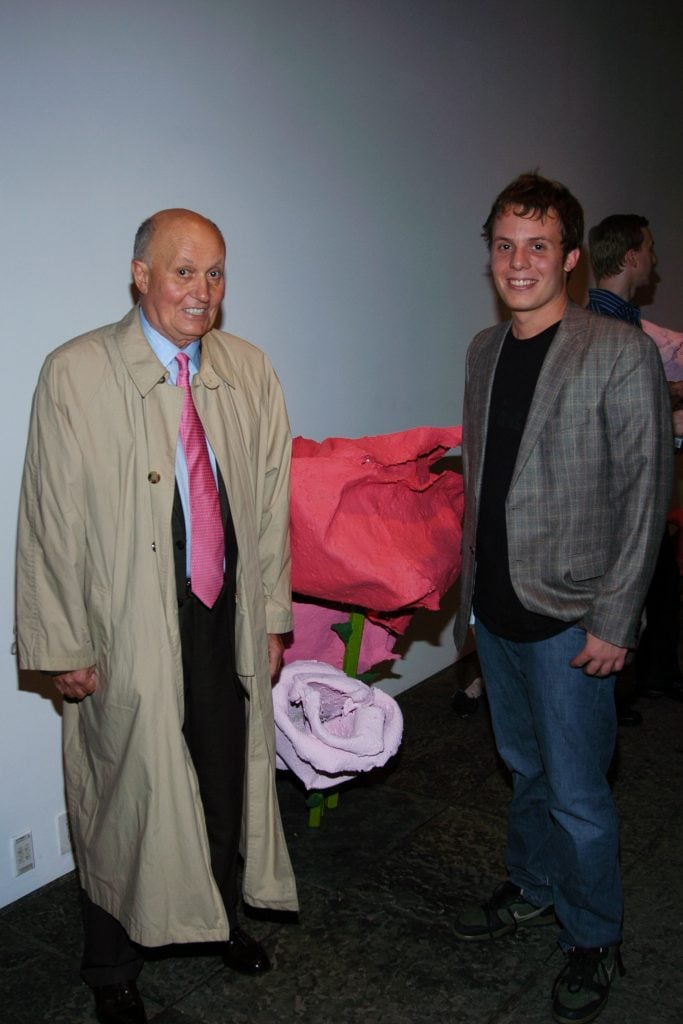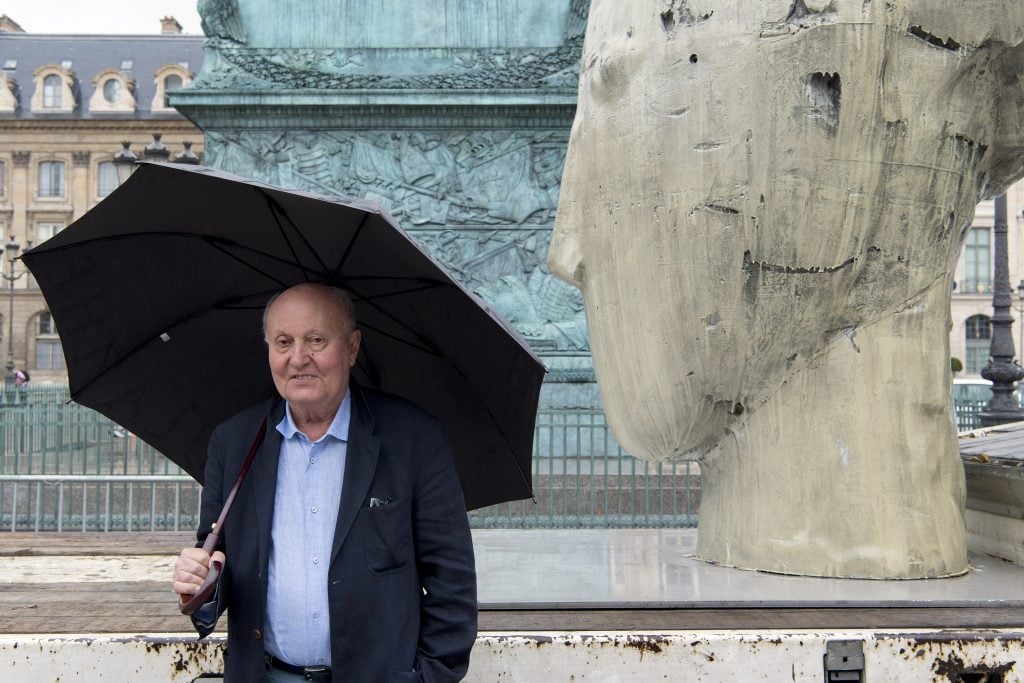Law & Politics
Reversing an Earlier Decision, Marlborough Is Not Closing Its New York Gallery—But It Is Trading Lawsuits With Ousted Former President Max Levai
The two sides traded lawsuits this week in Manhattan.

The two sides traded lawsuits this week in Manhattan.

Sarah Cascone

A simmering legal battle between New York’s Marlborough Gallery and Max Levai, its ousted former president, is heating up as the sides traded lawsuits filed on September 16.
Levai is suing the gallery for $10 million, alleging that the board conspired against him to stage a “coup” forcing his father, Pierre Levai, and him out of the family business.
“It is unfortunate it has come to this, but given Marlborough’s actions, I was left with no alternative,” Levai told Artnet News in an email.
The gallery, meanwhile, has accused the Levais of fraud, defamation, and civil conspiracy, among other counts, in an $8 million lawsuit.
The gallery’s lawyer, Brendan V. Johnson, told Artnet News that its complaint “makes clear that while the ownership of the Marlborough Gallery has consistently tried to find a constructive path forward, unfortunately an unfounded sense of entitlement seems to be motivating the defendants.”
And in a twist, despite the owners’ original plan to close the New York business permanently, which was first reported in June, the gallery is now being retooled, and is slated to reopen on September 26 under the leadership of art dealer Douglas Walla, founder of Kent Fine Art.
Marlborough is now set to open new exhibitions on September 26 with works by Magdalena Abkanowicz, Anselm Kiefer, and Adolph Gottlieb, among others.

Pierre Levai and Max Levai at Marlborough Gallery in 2009. Photo by Michael Plunkett/Patrick McMullan via Getty Images.
Pierre Levai is the nephew of gallery founder Frank Lloyd, and began running the New York branch in the 1970s, helping the dealer bounce back from a $9.2 million fine he was forced to pay for fraudulently undervaluing paintings by the late Mark Rothko. Max Levai joined the gallery in 2012, initially focusing on contemporary art before taking over his father’s larger role in 2019.
Under Max Levai’s leadership, Marlborough, which operated three galleries (Marlborough Contemporary, Marlborough Fine Art, and Marlborough Gallery), was consolidated into a singularly entity. The Upper East Side location, in operation since 1963, was shuttered, and the gallery announced ambitious plans to purchase the former Cheim & Read space in New York next door to the Chelsea Art Tower, which it already owned, for a large-scale expansion.
But behind the scenes, the gallery’s prospects had dimmed, according to the complaint that Marlborough Gallery filed this week. The business reportedly lost $18.7 million between 2013 and 2019, $14.5 million of which is allegedly connected to Max Levai’s management.
“Max Levai failed to demonstrate the ability to develop the type of relationships that had long sustained the Marlborough Gallery, resulting in decreased performance,” the complaint states. “Pierre Levai failed to scrutinize Max Levai’s performance and remained blindly committed to allowing Max Levai to transition to the role of president by 2019.”
Even before the pandemic, the “board repeatedly pressed Max Levai for business and financial planning that would support the ongoing viability” of the company, the gallery’s complaint says. “The information provided to the board did not result in confidence that the gallery’s operations could be responsibly maintained.”
On May 29, the board voted to permanently close the New York gallery altogether, and to breach the agreement to purchase the new space. Both lawsuits acknowledge that Max Levai was given the opportunity to rent the gallery’s real estate and to purchase Marlborough inventory as he transitioned to operating his own business under a new name.
But the Marlborough complaint says that negotiations with Max Levai broke down when the terms he demanded would have “amounted to at least a $10 million loss” to the gallery. The gallery also says Levai used the gallery’s inventory to open the Alone Gallery in the Hamptons without crediting Marlborough. (Levai’s complaint insists the board knew about the venture, and that it was designed to “enhance the revenue of the gallery.”)
The also gallery accuses Max Levai of issuing false statements to Artnet News about state of his father’s health and of erroneously claiming to the news outlet that he had left the gallery, despite allegedly continuing to be an employee.
It also accuses Levai and his father of “diverting unauthorized corporate monies to support Max Levai’s ill-advised venture into the restaurant and nightclub business.” (That business, called Happy Ending, made headlines in 2015 when one woman accused an employee of rape, and investor Julia Fox claimed she had been assaulted there by the club manager, her ex-boyfriend. Max Levai was not involved in either incident, but alleged that the assault claims were linked to extortion attempts.)
Marlborough also contends that Pierre Levai obscured the whereabouts of 23 artworks from the gallery’s stock by loaning them to Marcia Levine, an “intimate” friend of his who occasionally made sales for the gallery. The gallery is seeking the return of these and other works, in addition to monetary damages.

Pierre Levai, Marlborough Gallery. Photo courtesy Getty Images
But Max Levai says the gallery never really planned to close, and broke off communications after he submitted a list of Marlborough artworks he wished to acquire.
He contends that the board’s move to oust him and shut down the gallery was orchestrated while Pierre Levai was sick with COVID-19. (The gallery maintains that a board member informed Pierre Levai of the decision to close the New York branch in a personal phone call, during which Pierre Levai confirmed “that he was well into his recovery.”)
One particular point of contention is an Instagram account that Max Levai claims he started as a personal account under the name in 2013, before voluntarily changing its name to associate it officially with the gallery.
Upon leaving the gallery, he says he changed the name of the account to @maxlevaiart “to reflect his separation from Marlborough,” only to have a gallery staff member change the password and rename it back to its old handle.
Levai’s suit names gallery board members Stanley N. Bergman and Franz Plutschow and acuses them of having “set out to destroy Mr. Levai’s reputation, damage his relationships with artists and other industry figures, and hijack his valuable social media account all in an effort to block Mr. Levai’s ability to succeed on his own.”
As a result, the suit contends, he was “unable to make a fresh start after having been unceremoniously terminated.”